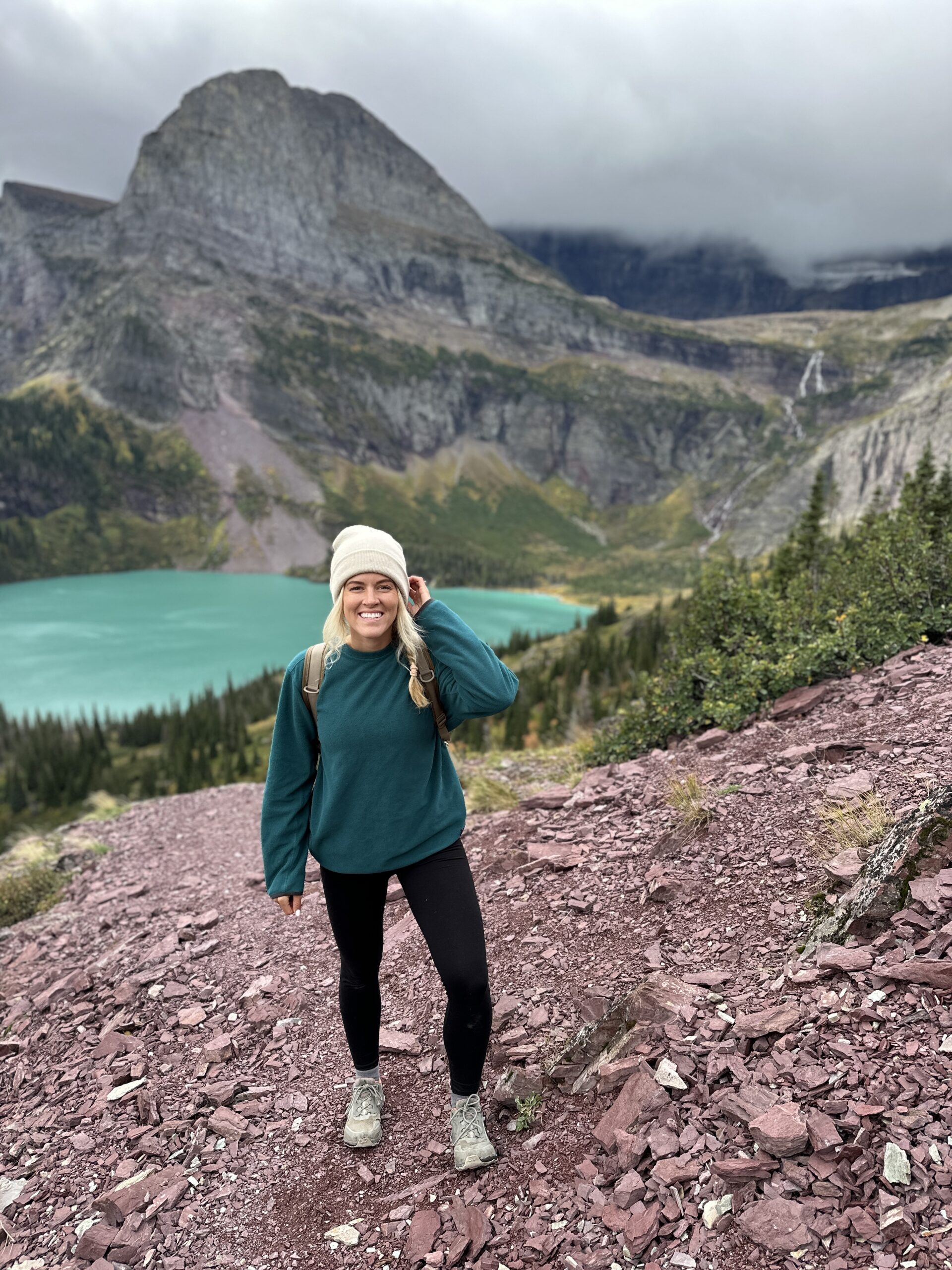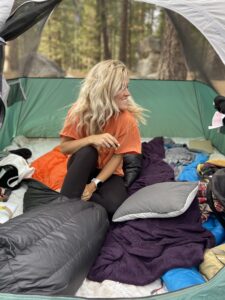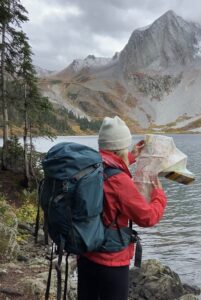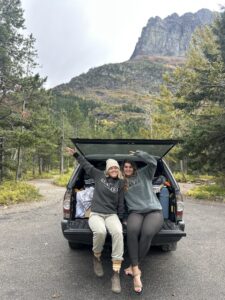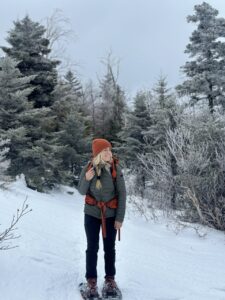Hiking for Beginners: 9 Tips to Crush Your First Hike
Most people don’t grow up hiking, and that’s totally normal. We all start somewhere, and sometimes have no one but ourselves and Google to get advice from. I know I made a lot of mistakes on my first few serious hikes and looking back now I realize how little I knew!
I thought hiking was just going for a walk in the woods so it’s just like walking down the neighborhood streets…not true. I wish someone had told me a few of these things so I didn’t have to learn them the hard way. There’s a lot to know when it comes to hiking, which is why I created this guide on hiking for beginners. This guide is not for backpacking or going for 14ers and extreme hikes. This is going to be a general guide for any day hike from 1-10 miles long.
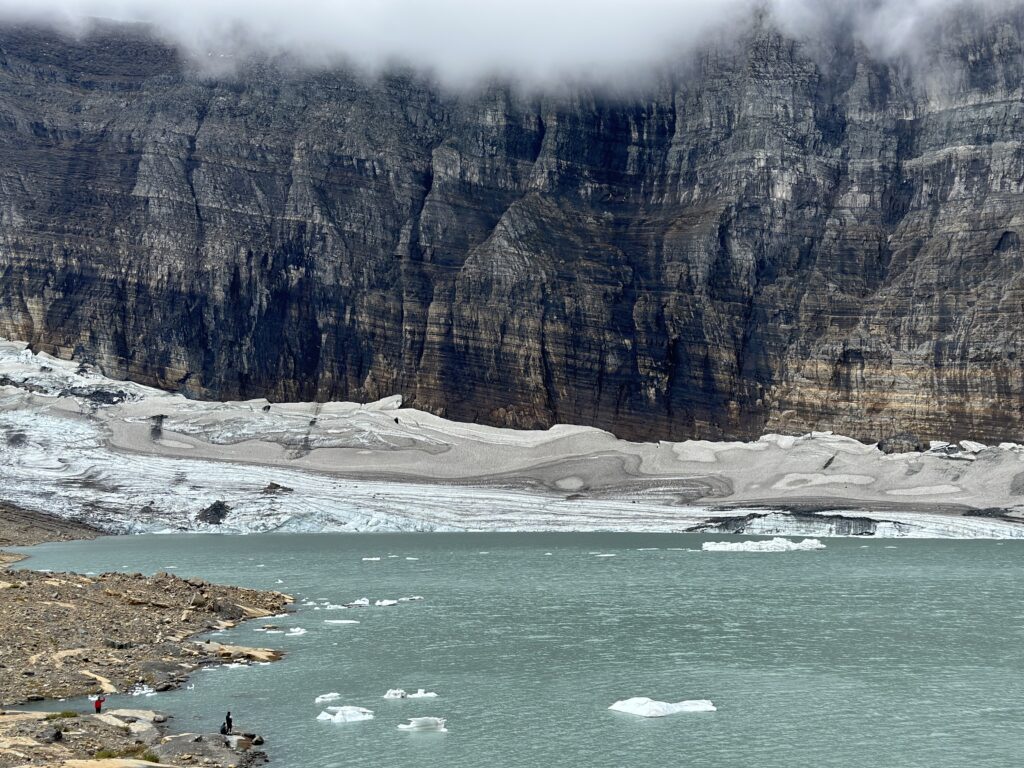
Hiking For Beginners: How to Pick a Trail
If this is your first off-the-side-walk-and-into-the-woods trail, a good beginner hike will be pretty short and will not have too much elevation gain. I would research and pick a trail 2-3 miles long. Make sure there is less than 500ft of elevation gain. Try and stay local for your first few hikes.
If you’re in good shape and are trying to hike more often, I recommend hiking 4-8 miles with 1500-2000ft of elevation gain. That is where you’ll learn how your body does on longer trails and how you need to pack for them. I bring 2-3x as much water and snacks if I’m going on a 10 hike with a 3,500ft elevation gain than if I’m going on a 7-mile hike with no elevation gain.
Here are websites I use to pick a trail!
- Alltrails
- TrailForks
- Farout
- Local State park websites and trail maps
Hiking for Beginners: Remember to Check the Weather
If you get out of work Friday and want to check out a local hiking trail, check the radar to make sure no storms are rolling in. Make sure to recheck before you get in the car to head to the trail. Getting stuck in rain or snow while on a hike is very dangerous. You often don’t have cell reception out there, and if you get hurt and the weather rolls in, it could go downhill quickly. Always have extra food and layers for unexpected weather. This tip isn’t just for hiking for beginners – you should always check the weather often and right before you go, no matter how seasoned you are.
Hiking for Beginners: Research the Trail First
- Make sure the trailhead is open. Spring and fall often bring many trail closings and openings, so knowing when to access that trailhead is important. Read comments for trailhead parking availability.
- Make sure the trail doesn’t require a permit. Most trails outside National Parks don’t, but some extremely popular ones do. If it does, go to RECREATION.GOV to get one. Always feel free to call the local Ranger station and ask them.
- Read recent trail reviews. Comments on AllTrails are super helpful for updates on trail conditions. You should know if there has been recent rain, if the trail isn’t marked well, or if it feels harder than the trail says. It is very important to know what to expect. There could be river crossings, recent bear sightings, etc. You should be prepared.
Hiking for Beginners: Get an Early Start
Let’s say you’ve never hiked this trail, and all of a sudden, it takes you twice as long as the review you read. It turns out the reviewer was a speed hiker, and you are not. Or you get slightly lost in the dark because you didn’t give yourself enough time for error. Here are a few good reasons to start early!
- Beating the crowds. Have you ever gotten to a beautiful lake and couldn’t sit there in silence to enjoy its beauty or get one photo without a stranger in the background?
- Getting a parking spot. If you aren’t an avid hiker, you might not realize that popular trails are often filled by 8 a.m. So plan accordingly to get a parking spot.
- Weather/getting lost. The weather can change so much; afternoon storms could roll in depending on your hike. If you don’t start until 3 p.m. and then need to add 2 hours due to getting lost or waiting out a rain storm, you could be running into the problem of hiking in the dark, which is not a great idea.
Hiking for Beginners: What shoes should I wear?
I see so many people hiking while wearing their Converse or whatever shoes they own… You may never want to hike again if you try to hike any moderate hike in your cute boots that slide on everything and give you blisters. You don’t need heavy boots unless you’re hiking in the snow. Good grip, comfy sneakers will do well on dry trails for your first trip. I love the Columbia boots I wear because they are a mix of lightweight and waterproof to keep mud and rain out. I also wear trail running sneakers on nearly all other hikes. 👇🏻
- Columbia Newton Ridge Plus
- Altra Superior 5 Trail running shoes
- Altra Lone Peak 7
Hiking for Beginners: What clothes should I wear?
Stay away from materials that don’t dry fast. Cotton is your biggest enemy. My first real hike I wore jeans… why? Because 5 miles round trip seemed small. I barely hiked before this, so I knew nothing of what elevation even meant. Do not wear jeans while hiking… I could make a blog on why, but not all on its own. I’m sure you could think of a few good reasons.
Bring extra layers because hiking can go from sunshine and sweating to shaded trails and chilly. Mountain tops can be 20 degrees colder than where you started at the car or even snow-covered. You never know until you’re there. Here is a brief idea of what to wear on a hike:
Summer hikes:
Winter hikes:
- Base layer top
- Middle layer
- Down Jacket
- Rain Shell
- Base layer bottom + outer layer
- Extra socks
- Beanie
- Gloves
Beginner Hikers: What else should I have?
Bring a 15-30 liter day pack with the 10 essentials
- Extra Layers
- Plenty of food
- Plenty of water
- Map and Compass
- First-Aid Kit
- Knife/Pepper spray or bear spray(dependent on location)
- Sunscreen
- Lighter
- Bug spray
- Emergency Bivy
- Satellite SOS system
Make sure to pack food and water for your first hike
This is huge. You never know what will happen or how hungry and thirsty your body will be. And that could get you into a lot of trouble when hiking any elevation or distance. Dehydration can ruin many trips very quickly! So, add electrolytes to your water as well.
- Meal Bars
- Trail Mix
- Candy Bars
- Prepped Sandwiches
- Electrolytes on the go
Grab some BLUEBERRY & ALMOND bars HERE
Grab some Electrolytes packets HERE
Don’t go alone if you can bring a friend on your first hike!
I’ll write more about solo hiking sometime. It’s an option and one I often use because sometimes we can’t wait for a friend to have a similar schedule. When it comes to hiking for beginners, try going with someone who has experience hiking. You’ll learn a lot from them.
If you DO go alone
- Tell 1-2 friends/family where you are hiking and what time they should expect to hear back from you once you are done.
- Always sign into the trailhead book if they have one.
- Bring a Garmin Tracker: in case something goes wrong, you can have help sent to you.
- Bring self-defense; I like to bring pepper spray or bear spray when alone.
- Don’t make unsafe decisions. Remember you are alone, and no one is there to help if you get hurt(unless you carry a Garmin). Return to the car and go elsewhere if someone made you uncomfortable at the trailhead. If the weather is turning bad, turn around and hike back down.
I hope you enjoyed this guide on hiking for beginners and that you feel confident and ready to tackle your first trail. Once you get out there, I know you’ll see how much fun and easy it is to get into this hobby!
If you want to learn more about what type of gear to bring, be sure to sign up and receive my free hiking checklist.
Happy adventures!
Comment below and let me know what your first hike is!
Some links may contain affiliate links. I may earn a small commission on these links, but they are never at any extra cost to you!


